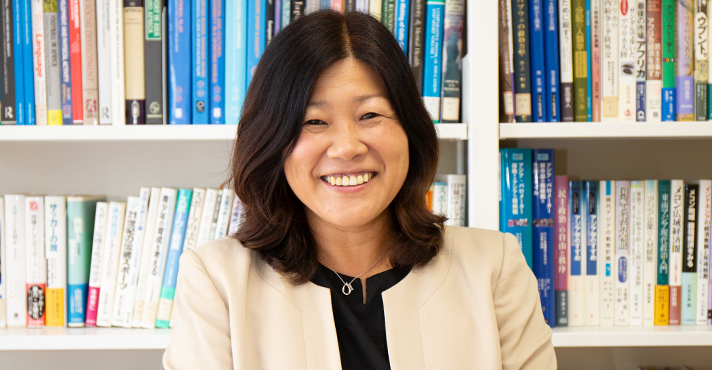
Dr. Chiaki Okada, Graduate School of Human Sciences
"More than just a game: The relationship of sports and community in contributing to SDGs"

In September 2015, the United Nations General Assembly adopted the resolution entitled Transforming Our World: the 2030 Agenda for Sustainable Development . The resolution outlines 17 Sustainable Development Goals (SDGs), which address areas such as poverty, education, health and welfare, and the development of sustainable communities and cities. How can we address the challenges related to the achievement of these goals? What are some of our available options? In the first opinion piece of Osaka University GLOBAL OUTLOOK, we will focus on the role of sport within communities, recognizing its large potential for positive change. Over the next few years, sport will be at the center of public attention in Japan, with the Rugby World Cup to be held in 2019, the 2020 Olympic Games the following year in Tokyo, and the World Masters Games in 2021. Such major upcoming events provide us with the opportunity to rethink the role of sport in Japanese society. For this opinion piece, we spoke with Dr.Chiaki Okada,associate professor at the Graduate School of Human Sciences and a pioneer in promoting international cooperation through sport. We asked Dr. Okada to share with us her views on the relationship between sport and communities with a special focus on Japan.
According to Dr. Okada, a central feature of sport in Japan is its status as a competitive game. Moreover, sport is tightly intertwined with school life: students receive physical education grades and are socialized in school sports clubs in secondary school. The consequence of this is that young people come to understand sport not only as a competitive activity but also as an activity through which hierarchy is created and justified. In addition, school sports club activities serve as an important socializing mechanism through which students learn how to act in hierarchical structures, namely one in which the kohai (junior members) are expected to respect and follow the senpai (senior members). More recently, this understanding of sport has led to a variety of problems, which have also received considerable media attention.
The strong connection between sport and school education and the centrality of schools in local communities has limited the role of sport within Japanese society. Sport can serve as a mechanism through which the whole community gets involved in the search for solutions to social tasks and challenges. We therefore need to re-conceptualize its role. Schools, private organizations, and the broader community need to collaborate and create an environment that allows sport to unfold this potential. It is this broader understanding, the potential of sport to foster and strengthen relationships between people that should be further promoted in our society.

Sport connects people. It can serve as an important vehicle for social learning. Its potential should not be limited by emphasizing competitive principles that produce winners and losers, or its function as a socialization mechanism that contributes to the reinforcement of traditional values and societal structures. To open up this potential, it will be necessary to loosen the strong connection to school education, and strengthen its importance as a community builder.
The 17 SDGs set by the UN are highly ambitious. To achieve them, we need to not only search for new possibilities, but also rethink and re-evaluate our already existing options. With regard to the latter, the potential of sport to contribute to the achievement of several of the UN’s goals is enormous – potential that we have yet to fully tap into.
Text: Saori Obayashi/Edit: Christopher Bubb